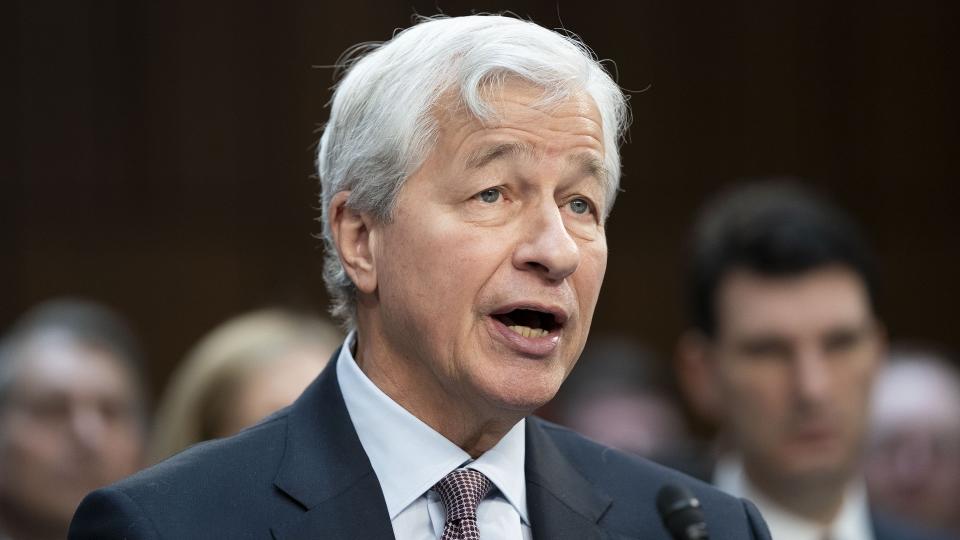Chase CEO: Taxing Wealthy More To Aid Low-Income Americans a ‘No-Brainer’ — 3 Reasons Why

There’s no shortage of suggestions to help struggling, low-income Americans improve their financial stability. However, while expanding federal and state safety net programs, producing equitable job creation initiatives and increasing minimum wage and guaranteeing paid leave look good on paper, they require political finesse and a lot of money.
Billionaires vs. the Middle Class: Who Pays More in Taxes?
Owe Money to the IRS? Most People Don’t Realize You Can Do This – Today
Then, of course, there’s progressive taxation, where wealthier individuals pay a higher percentage of their income in taxes. While it’s seen as a fair way to contribute to the economic balancing of society, wealth taxing is seen as unconstitutional by some, and has garnered opposition by many holding the majority of the money in the U.S.
The issue is a cinch for one open-minded billionaire, however. Speaking at a panel discussion hosted by the Bipartisan Policy Center last week, JPMorgan Chase CEO and chairman Jamie Dimon suggested changes to the current tax system, telling the audience that to provide low-income populations with more financial security, he “would pay for it by taxing the wealthy more.”
“This is as much of a no-brainer policy as I have ever seen,” Dimon said. “With all of the polarization we have today, the low income folks have more crime, worse health, less good schools. I think it’s unbelievable.”
Dimon didn’t expound on specifics, but there is always a case to be made for taxing the rich to fund tax cuts and programs for the poor. Here are three reasons why taxing wealthy Americans will help to shift the enduring inequality in this country:
Sponsored: Owe the IRS $10K or more? Schedule a FREE consultation to see if you qualify for tax relief.
1. Addressing Income and Opportunity Inequality
The main rationale behind wealth taxes is to promote economic equality, by getting those in the position to give more revenue in aid of the financially disadvantaged. The concentration of wealth in the hands of a few individuals or corporations has led to a lack of economic opportunities for a large part of the U.S. population.
Social programs that benefit low-income individuals, such as education, healthcare, housing and job training are in desperate need of funding. Tax revenues from the wealthy can contribute to creating a more equitable, socially mobile society by providing tools and opportunities for those with fewer resources to improve their economic circumstances.
2. Expanding Government Tax Credits
Although Dimon is in favor of taxing the rich more, it would have to be done in tandem with the government overhauling its tax credits, particularly anti-poverty programs like the Earned Income Tax Credit (EITC), which is “wonky and complicated,” according to Fortune.
Tax hikes for the wealthy can be used to expand the EITC and reinstate the Child Tax Credit (CTC), which helped lift millions of children out of poverty when it was increased in 2021.
3. Overhauling Tax Rates
While the wealthiest have seen their fortunes grow significantly over the years, their percentage rates have sunk lower than those of the low-income working classes. According to Fight Inequality blog, governments need to start looking at reversing the trend of initiating tax reforms that have favored “regressive and consumption taxes while reducing taxes of corporations and the wealthy.”
Additionally, charging the richest individuals more in taxes may help offset the billions that are easily bypassed through breaks, avoidance schemes and tax haven transfers every year. “There are so many tax breaks out there that shouldn’t be there,” Dimon said at the panel event, although the discussion quickly turned into a call to eliminate deductions that the GOP opposes, like the State And Local Tax (SALT).
Dimon, 67, is currently the CEO and chairman of JPMorgan Chase, the largest bank in the United States in terms of assets. With an estimated net worth of over $2 billion, Dimon makes $36 million a year and received a 4.3% raise in 2023 after JPMorgan reached an historic record profit, per Bloomberg.
More From GOBankingRates
I'm a Shopping Expert: 9 Items I'd Never Put in My Grocery Cart
Barbara Corcoran: 'Forget About Florida,' Move Here for Cheap Homes
Experts: Make These 7 Money Resolutions If You Want To Become Rich on an Average Salary
4 Reasons You Should Be Getting Your Paycheck Early, According to An Expert
This article originally appeared on GOBankingRates.com: Chase CEO: Taxing Wealthy More To Aid Low-Income Americans a ‘No-Brainer’ — 3 Reasons Why

 Yahoo Finance
Yahoo Finance 